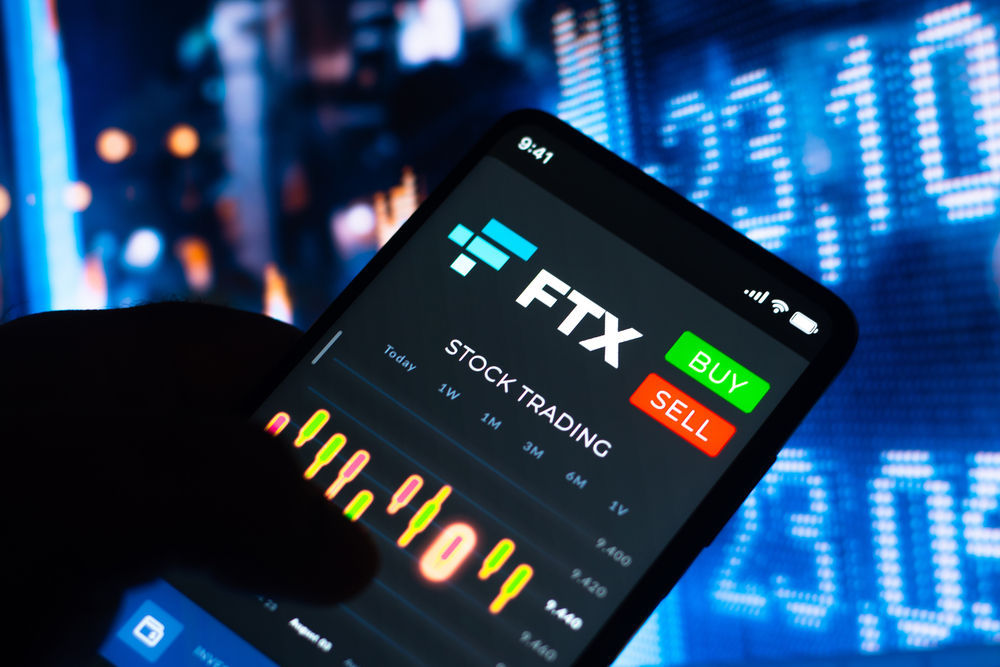FTX crashed. And now FTX’s rival Coinbase urges the government to better regulate the crypto market – in order to protect consumers. While that would be an honorable objective, it actually sounds a lot like ‘regulatory capture’.
Different from what a superficial look would suggest, government regulation is enticing when you’re a solid, big company. Regulation means that companies have to comply with certain rules, and this requires additional expenditures, e.g., hiring a lawyer to analyze and keep track of said regulatory rules, or incurring costs to adjust the product in line with the regulatory guidelines. The quintessence is that regulation creates barriers to entry. It makes it more difficult for start-ups to enter the market and innovatively threaten your company. For these new competitors, it is more difficult to navigate the regulatory framework given that they have less capital, and they may even be disallowed to offer their innovative product on the market. But there is a catch: regulation can also be a threat to your established company.
So, regulation is ambiguous. It can help you, but it can also damage you. The best situation seems to be that the government regulates the market, but that you can sufficiently influence how the government regulates it. While the regulation hampers your profitability, it solidifies your position as one of the big firms in the market, if it is friendly, as it makes market entry for innovative new competitors more difficult. And in the long run, a secure position in the market may be more convenient than having slightly higher profits.

The idea that companies attempt George Stigler’s ‘regulatory capture’ follows naturally from this. Companies have a strong incentive for their industry to be regulated, albeit in a specific way. They thus attempt to influence or capture the regulation. Regulation in many cases will then not be the result of public-spirited politicians and bureaucrats, but the outcome of a process of largely self-interested groups that intend to use the government’s coercive powers for their own advantage.
Having the government support your special interests is great, but there is another catch. It won’t be popular with the citizenry. So the last ingredient to successful regulation is that the public believes that the regulation is in the public interest, and not that of you and your company. With this in mind, let’s turn to the crypto market in the aftermath of FTX.
A couple of days ago FTX, the crypto exchange led by Sam Bankman-Fried, imploded. This leaves many consumers and also investment firms with huge losses. A failure of too little regulation?

The statements of several politicians like Elizabeth Warren and bureaucrats like Gary Gensler suggest this. And if there is too little regulation, the government should surely step in and regulate more and better. Thus Brian Armstrong emphasized that “we need smarter regulation that protects consumers”.
This sounds great. Only Brian Armstrong is the CEO of Coinbase, a big player in the crypto market. The generous CEO who is concerned with the fate of the people? This may be so. But in light of the profit-making nature of companies and the power of the government to aid companies making profit, we should at least be doubtful. Ultimately, Coinbase has an interest in friendly government regulation because that would mean to protect its position against dangerous competition. The best way to fend off innovating competitors is to use government power. And since using government power for anti-competitive purposes isn’t particularly popular, you tell the public that the regulation is in their interest, and not in the interest of you and your company.
Incidentally, attempts at regulatory capture may even have occurred before the breakdown of FTX. After all, it was Sam Bankman-Fried who donated lots of money to politicians and who explained that he is “spending a lot of time talking with members about what constructive things would be on crypto policies and about what can be done to provide federal oversight of it. And so when I go to D.C., that is often what I’m doing.”
Let me be clear, the narrative I put forth need not be true. Perhaps the Coinbase CEO actually means well – for the consumers, that is, and perhaps so did Sam Bankman-Fried. But it may be different. It may be that Coinbase, just as FTX may have done before, simply wants to influence politics in order to secure their market position – while telling the public they want regulation for the public’s wellbeing. After all, this is what a company which wants to make profit – and this for the foreseeable future – should do. At least if the government is not limited in its power to regulate and can thus be captured by particular interests.
Max Molden is a PhD student at the University of Hamburg. He has worked with European Students for Liberty and Prometheus – Das Freiheitsinstitut. He regularly publishes at Der Freydenker.


READER COMMENTS
Spencer
Dec 22 2022 at 12:16pm
re: ‘regulatory capture’.
That’s what the American Bankers Association did. Banks don’t lend deposits. Deposits are the result of lending. The banks pay for the deposits that they already possess.
Ken P
Dec 22 2022 at 4:21pm
This is a good explanation of the textbook case against regulation, but in this case the devil is in the details. Brian Armstrong is asking for regulatory clarity not new regulations. Specifically, a definition: What is a security and what is a commodity?
The current approach is regulation by enforcement. SEC picks and chooses who to target and charges them without every publishing any regulatory guidance.
FTX makes more sense as an example of regulatory capture. Many of the decisions seemed to favor them and there are personal connections that raise conflict of interest concerns.
Max Molden
Dec 23 2022 at 11:16am
Thanks for your thought-provoking comment, Ken. I think it often happens that regulation is rather poorly designed.
However, don’t you think that Brian Armstrong may have a valid point with regards to the need for regulatory clarity and still be eyeing for regulatory capture? I think the two do not necessarily exclude each other!
Henry
Dec 22 2022 at 6:47pm
I don’t think that we should have any government oversight of crypto. Yes, that means that someone will defraud users of crypto, but the potential users should simply include this in their calculations of whether crypto is suitable for them. Once there is government oversight, then bailouts are sure to follow.
I don’t have any crypto. I view it like buying lottery tickets. Once you buy them you don’t get your money back. There are people who have made a lot of money on the lottery, but the odds are small just like crypto.
Max Molden
Dec 23 2022 at 11:09am
I tend to agree with you on that, Henry!
I feel that this is similar to questions like whether we should have the Federal Reserve in the banking system. Free banking might very well be the superior alternative.
Mactoul
Dec 22 2022 at 7:52pm
A slightly different angle is possible. Crypto right now has taken a credibility hit and investors are wary. So, inviting regulation may be a way of reassuring the investors.
Comments are closed.